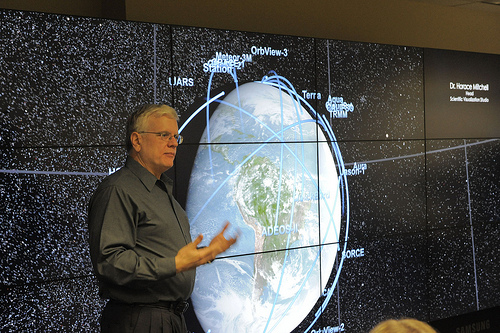In 2009, the Obama administration directed federal agencies to set new standards to help ensure that government decisions are based on sound science. As I reported last week, some watchdogs are unhappy with the scientific integrity plan that the Environmental Protection Agency released in response to the White House’s orders. But at least the EPA bothered to come up with a plan; the National Aeronautics and Space Administration decided to take a pass.
On the deadline for filing the plans, NASA sent a 10-page note recapping what they already have in place regarding scientific integrity. The agency argued that the policies it already has meet the Obama administration’s requirements. The memo is heavy on its expectations for NASA’s scientists and engineers—ensuring that they are operating on the up-and-up when it comes to their science, finances, and ethics. It’s notably light, however, on what it says about managers, political appointees, and public relations staff, and the expectations for how they will behave.
Of course, ensuring that the scientists within our agencies are operating with integrity is important. But most of the problems with scientific integrity stem from political appointees attempting to control the release of information, silencing employees that buck those in charge, or retaliating against whistleblowers. NASA’s policy offers no protections beyond the Whistleblower Protection Act of 1989, which is in dire need of strengthening.
This is pretty significant at NASA, which handles a lot of crucial data about climate change. And it was NASA that attempted to silence climatologist James Hansen just a few years ago, under the Bush administration. (Granted, Hansen does all kinds of talking about climate change now—including getting arrested at a coal protest outside the White House.) So, having a firm integrity policy in place for scientists and the people in charge is crucial should, say, Rick Perry end up in charge of the country in the near future.
A White House blog post notes that NASA intends to “make modest changes by fall.” It’s not clear what those changes will be. I’d like to take the Obama administration at its word when it comes to scientific integrity. But the White House basically left the decisions on writing these plans up to the individual agencies. Perhaps there’s still a possibility, then, that the administration will encourage the agencies that produced weak plans to tweak their policies.















